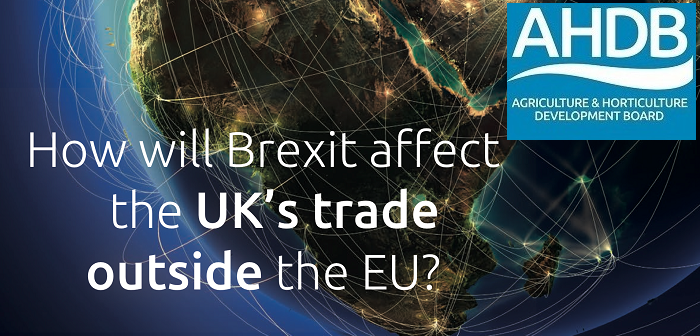Future trade issues relating to non-EU countries are important for the pork sector following the Brexit vote, according to the second specialist post-referendum report issued by AHDB.
“So far this year, 45% of UK pigmeat exports have been to countries outside the EU,” commented AHDB Pork, adding that this share has been rising steadily over recent years.
“In addition, some of the product exported to other EU member states will also have been for onward shipment to non-EU markets.
“At present, UK imports of pigmeat from outside the EU are negligible, as import tariffs make the EU market unattractive. However, this could change depending on the approach the UK takes to trade policy.”
This pork sector analysis is drawn from AHDB’s latest “Horizon” report which looks at the pros and cons of pursuing a restrictive trade policy and what this might mean for agricultural industries in the UK.
The report also examines existing markets for agricultural products, explores how EU membership influences UK trade and identifies challenges which the future holds for UK trade.
Running to 10 pages, the report reaches the following conclusion:
“Leaving the EU will affect UK agricultural trade in a number of ways. Having been a member of the EU in its various forms for over 40 years, UK trade is closely intertwined with EU trade policy and agreements. Extracting ourselves from this relationship will be both complex and time consuming. Establishing external trade relationships on a standalone basis will be challenging.”
It also lists the following key issues:
- In size terms alone, the UK will not have the same bargaining power in negotiating trade deals as it benefited from as part of the EU. However, the UK will benefit from greater flexibility, and the ability to focus on its own priorities, rather than an EU collective set of priorities.
- What level of priority will UK agriculture be given in negotiations? Agriculture is only one sector of the economy to consider when trade agreements are negotiated. It appears unlikely that the UK Government will place as much priority on agriculture as has been provided at an EU level – although the current Government has placed greater importance on agriculture and food exports than enjoyed in recent years.
- The complexity and time which trade negotiations take. For existing EU Free Trade Agreements (FTAs), the negotiation process will determine what share of these agreements the UK will be entitled to. For agricultural trade outside of FTAs, what sort of continuity on technical issues will be possible? Transferring EU sanitary and phytosanitary standards (SPS) to UK equivalents may be straightforward or complex.
AHDB added that it will continue to monitor developments closely.




